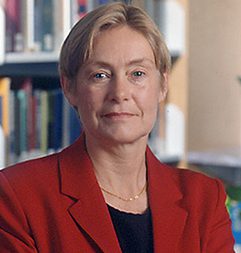Dr. Pat Hutchings served as a member on NSSE's National Advisory Board (NAB) from 2007 to 2014 and chaired the board from 2014 to 2016. In addition to serving on the board, Dr. Hutchings has been a Senior Scholar for both the National Institute for Learning Outcomes Assessment (NILOA) and the Carnegie Foundation for the Advancement of Teaching. Her expertise in the scholarship of teaching and learning has been instrumental in understanding the ways faculty members can use NSSE results, informing their practice as educators. This month, Dr. Hutchings shared some insights from her time on the board in an interview.
Dr. Hutchings' foreword for the 2008 NSSE Annual Results, Promoting Engagement for All Students: The Imperative to Look Within, describes an engaged campus as "one in which people actively collaborate to understand more about the student experience and work together to design better approaches and programs. It's one where faculty seek out student perspectives on their own learning, and see them as critical voices in the ongoing conversation about quality" (p. 4). Over the past decade, Dr. Hutchings found collaborating with other members on the NAB complemented this view by exposing her to diverse stakeholders in higher education, and exemplifying the need for vertical integration when students, staff, faculty, and administrators use NSSE data to make improvements.
In her service on the board, Dr. Hutchings guided project decision-makers to consider how the scholarship of teaching and learning can be used as a means to involve faculty, who may not always make use of resources like NSSE results. It is not uncommon for survey administrators to struggle with either disseminating data or generating faculty buy-in, and Dr. Hutchings agrees these are difficult places from which to start. Instead, Dr. Hutchings advises assessment staff "to bring faculty together to think about what they'd like to know. Then, you find ways to map the evidence collected on to those questions. That's how you create an interest in the data."
When thinking about her time with the project, Dr. Hutchings appreciated the "restlessness" in the ways NSSE staff sought to enhance the survey and develop tools, serving those who wish to use the NSSE results - and those who could benefit from their use. The commitment to supporting educators by NSSE staff mirrors the innovations shown by those who work in higher education to improve student learning on college campuses. More broadly, Dr. Hutchings sees the work of NSSE as "building a community of people who care about engagement. The survey will continue to evolve and improve, but hanging on to this shared, central idea of engagement within higher education is the real key."


